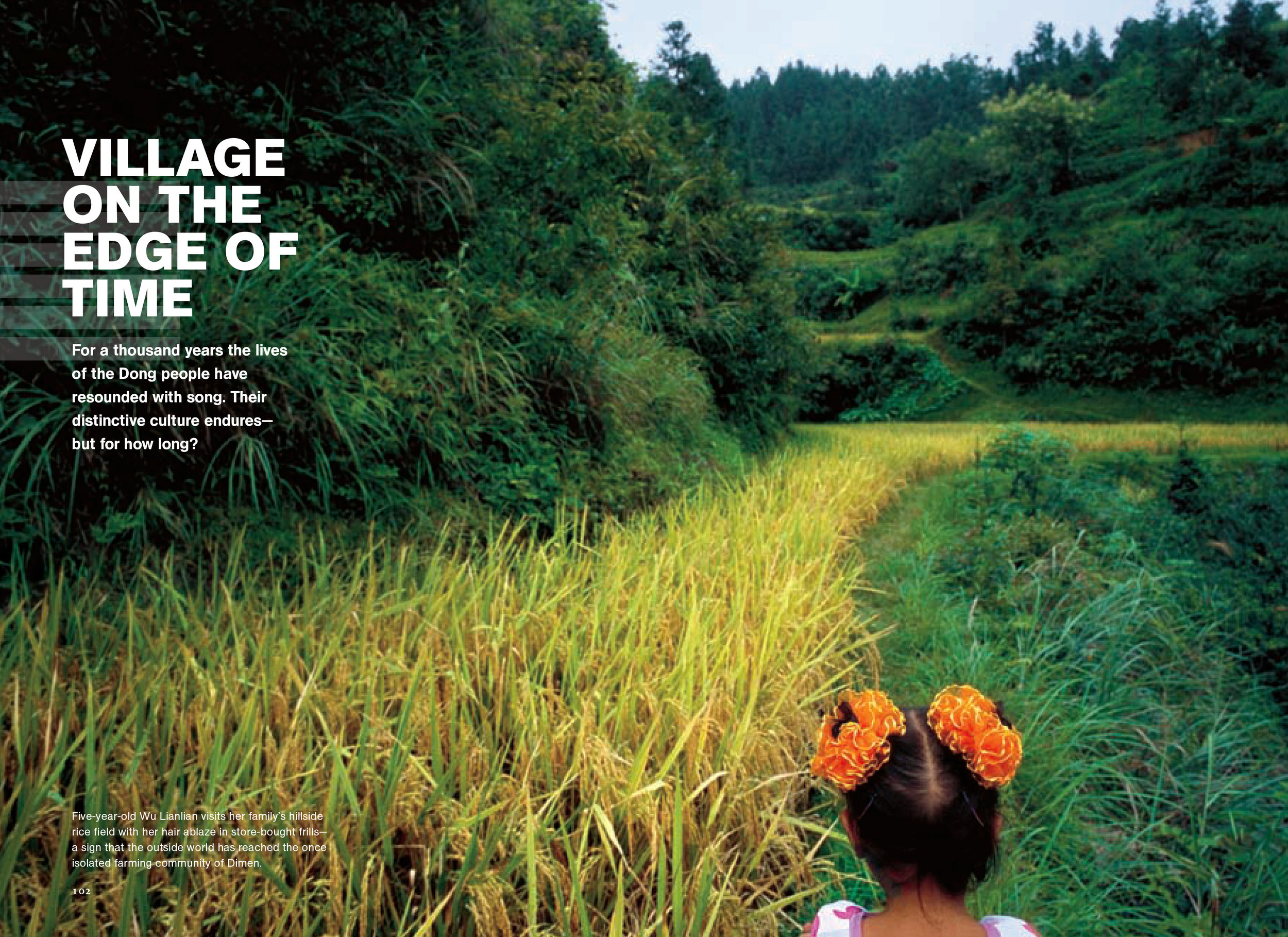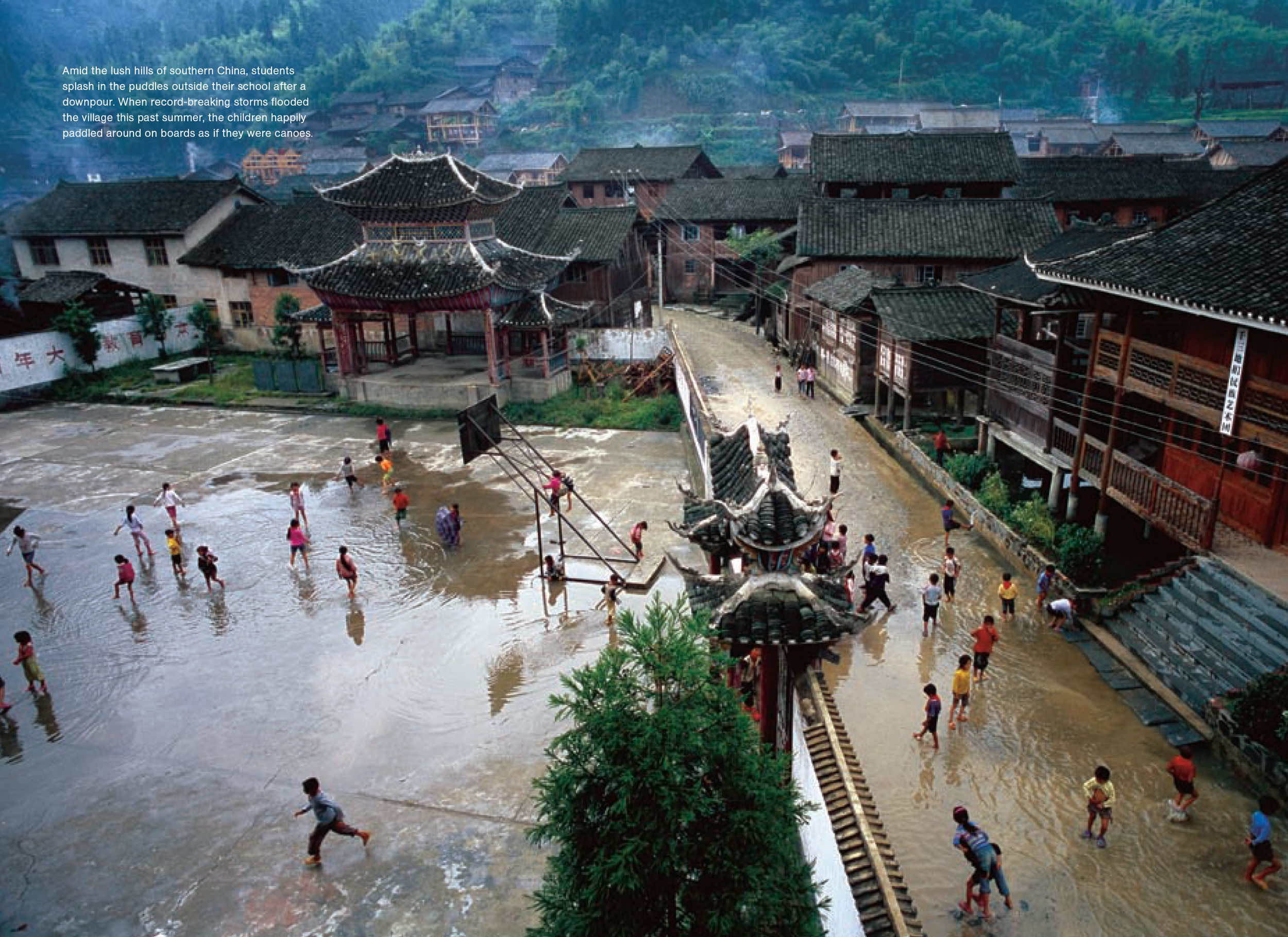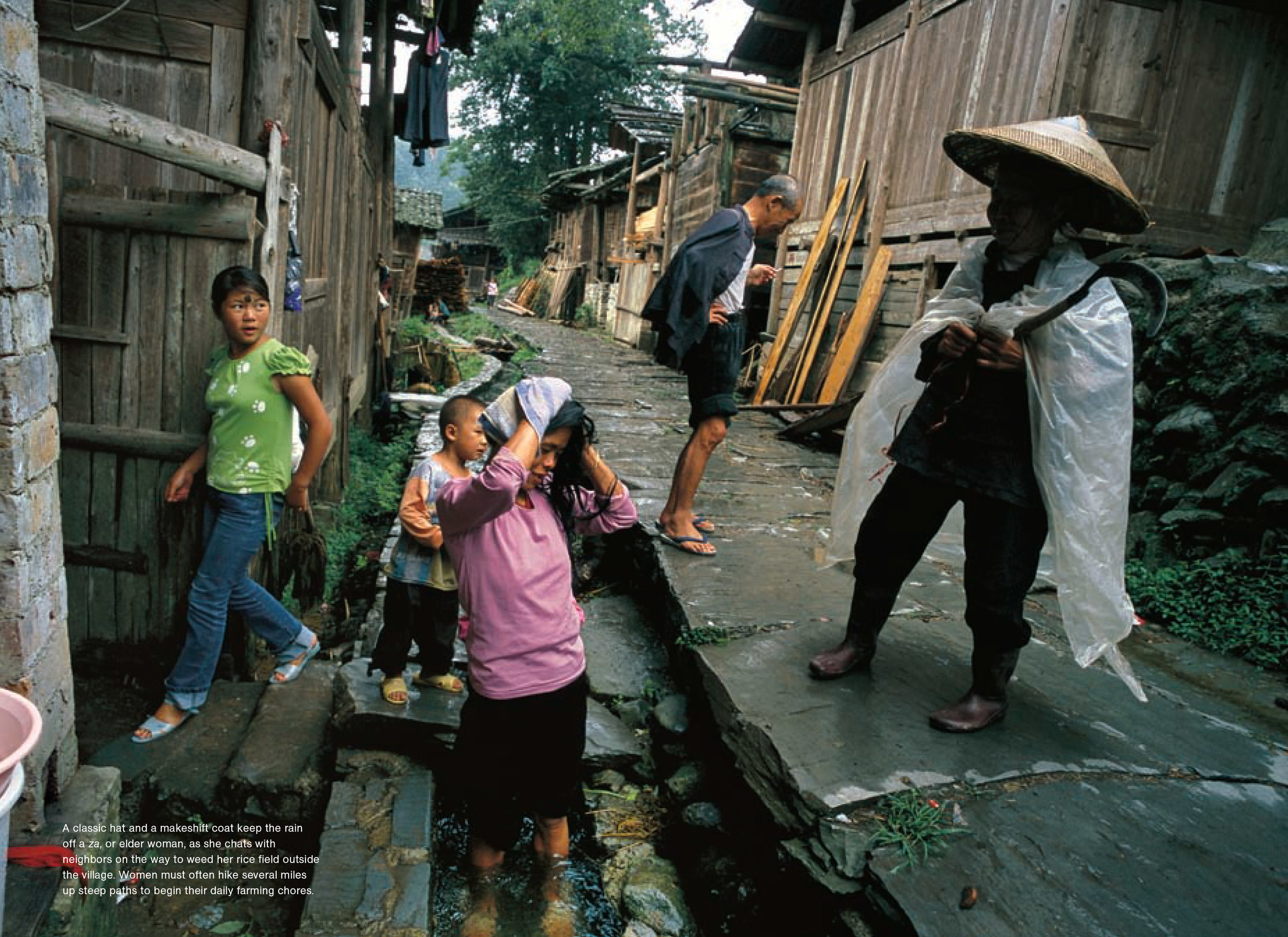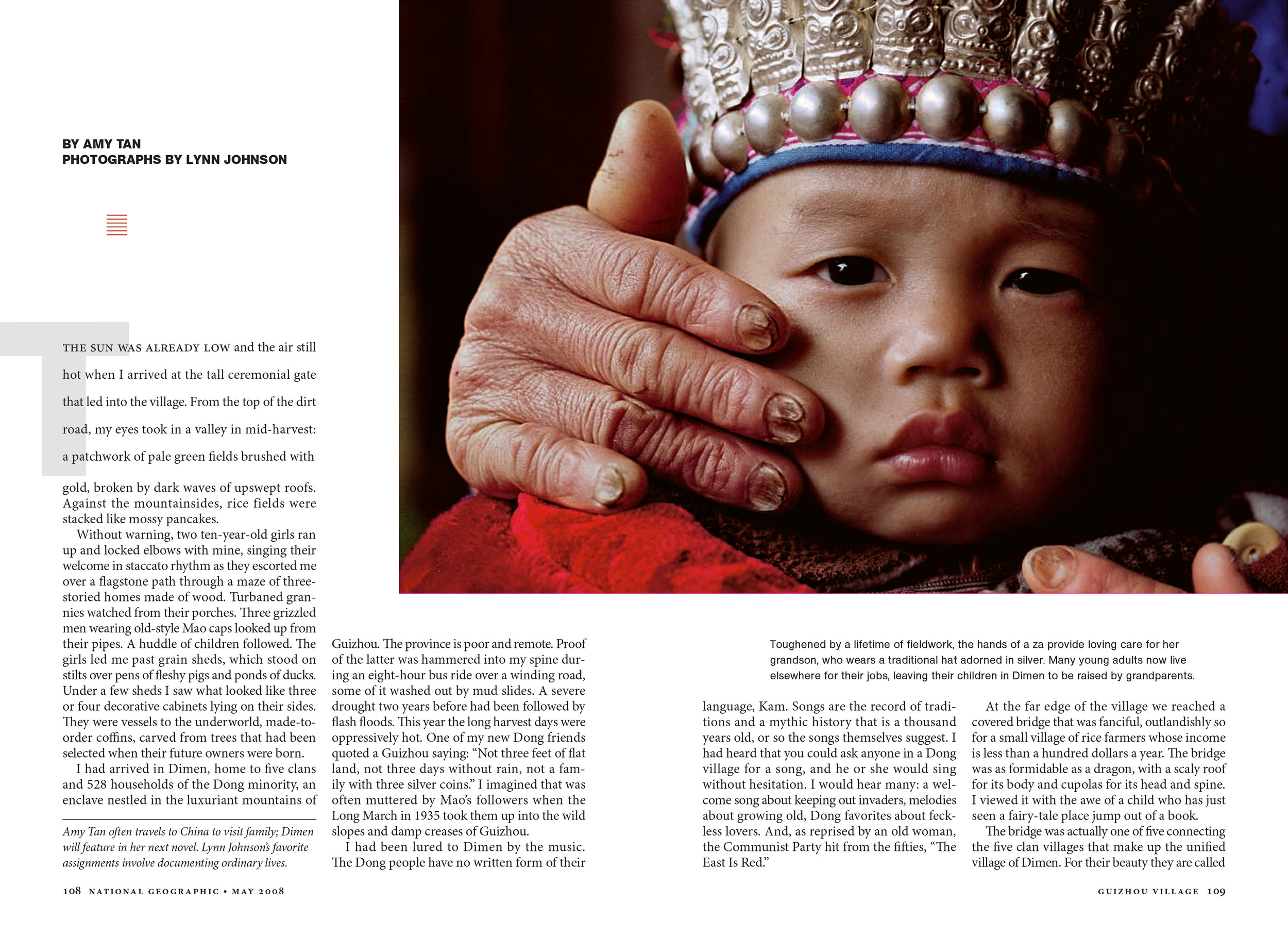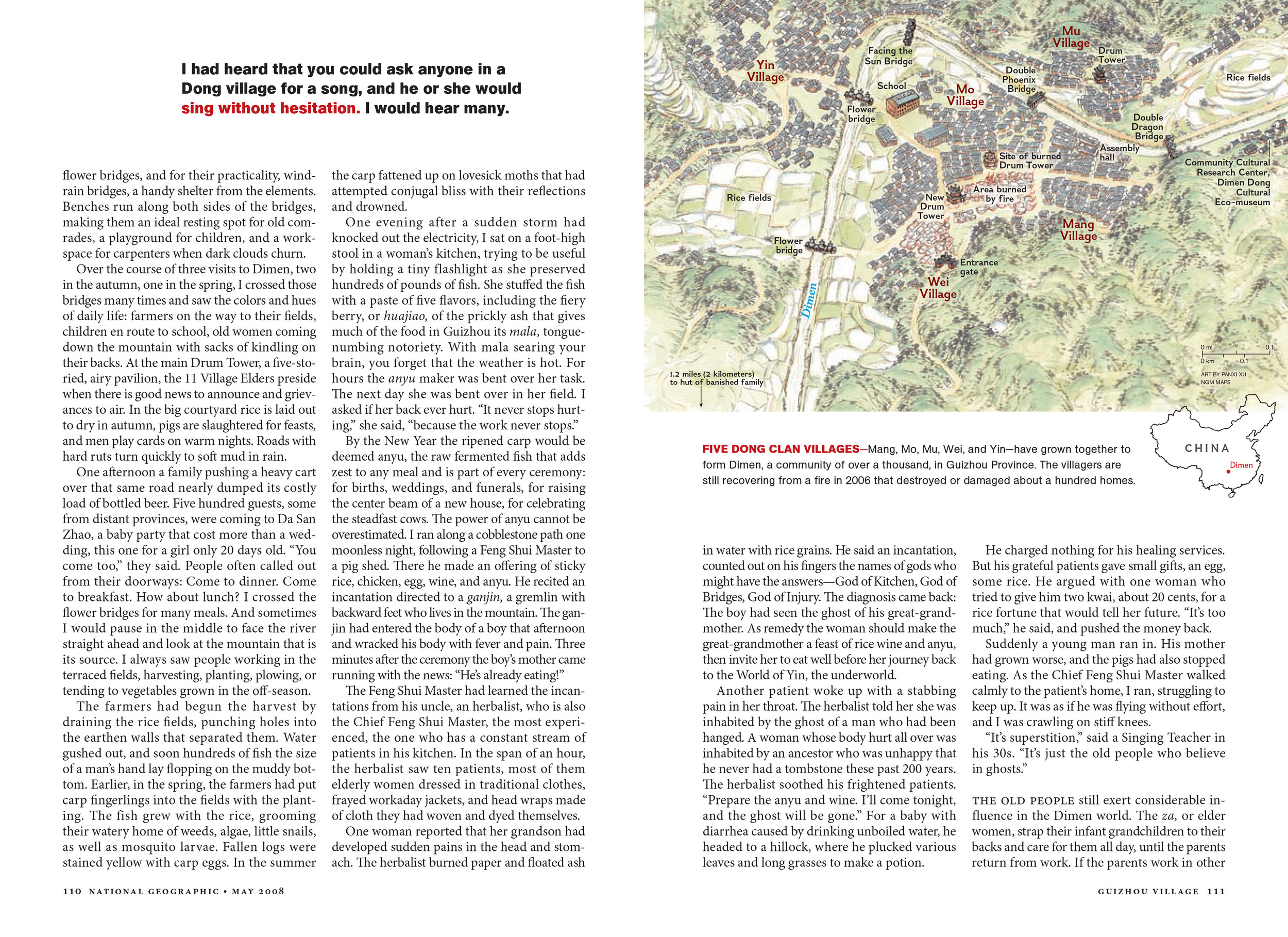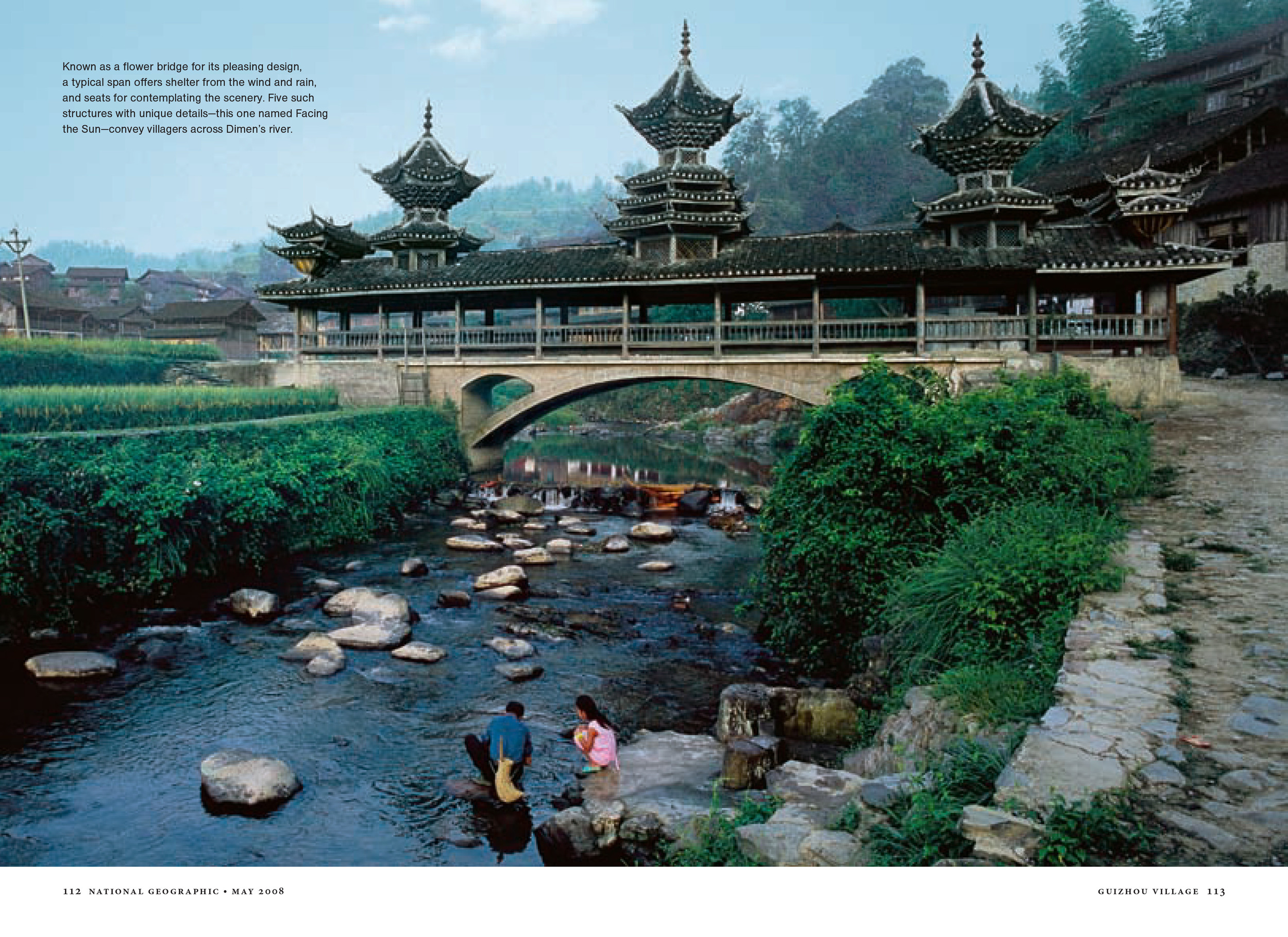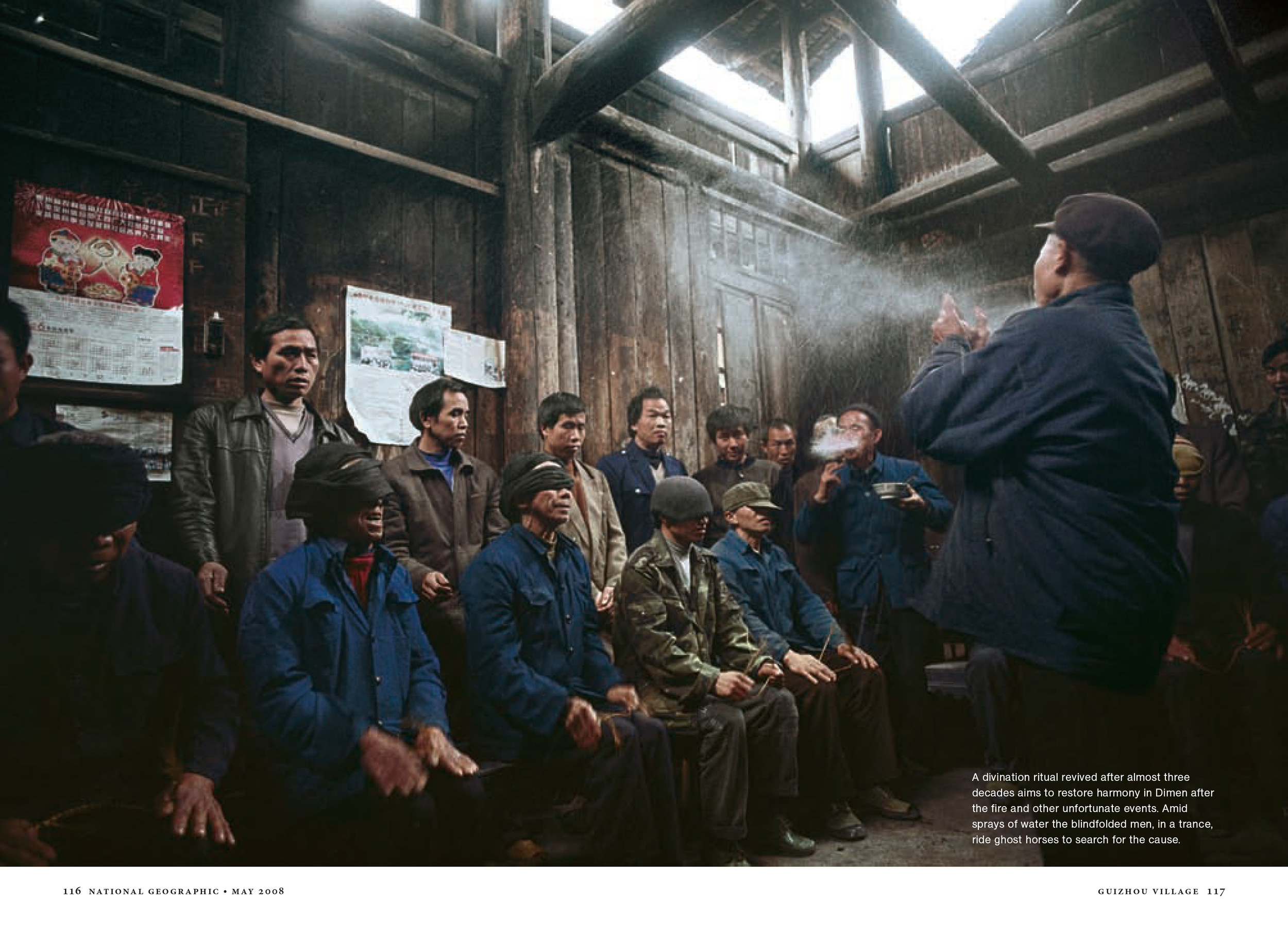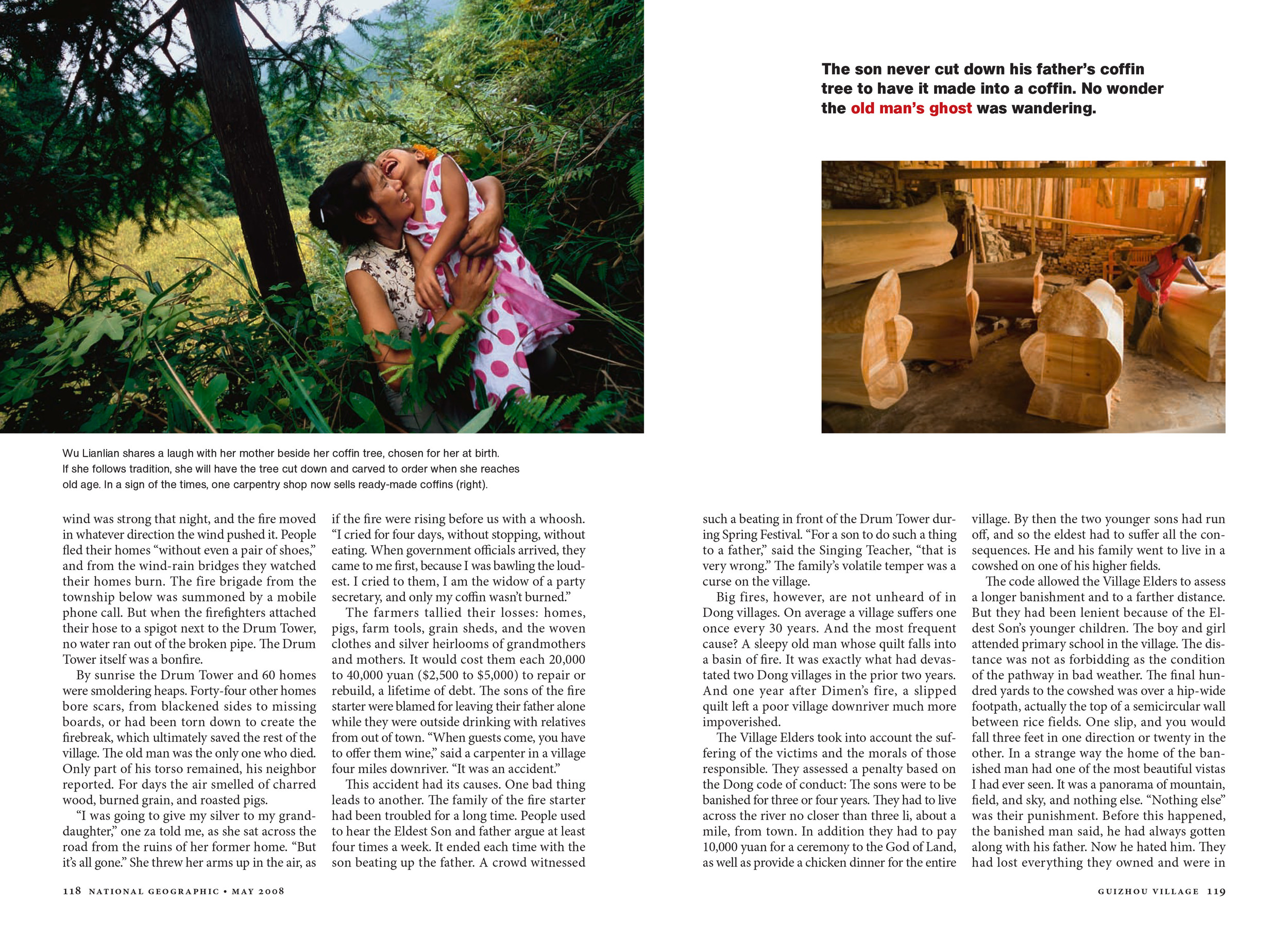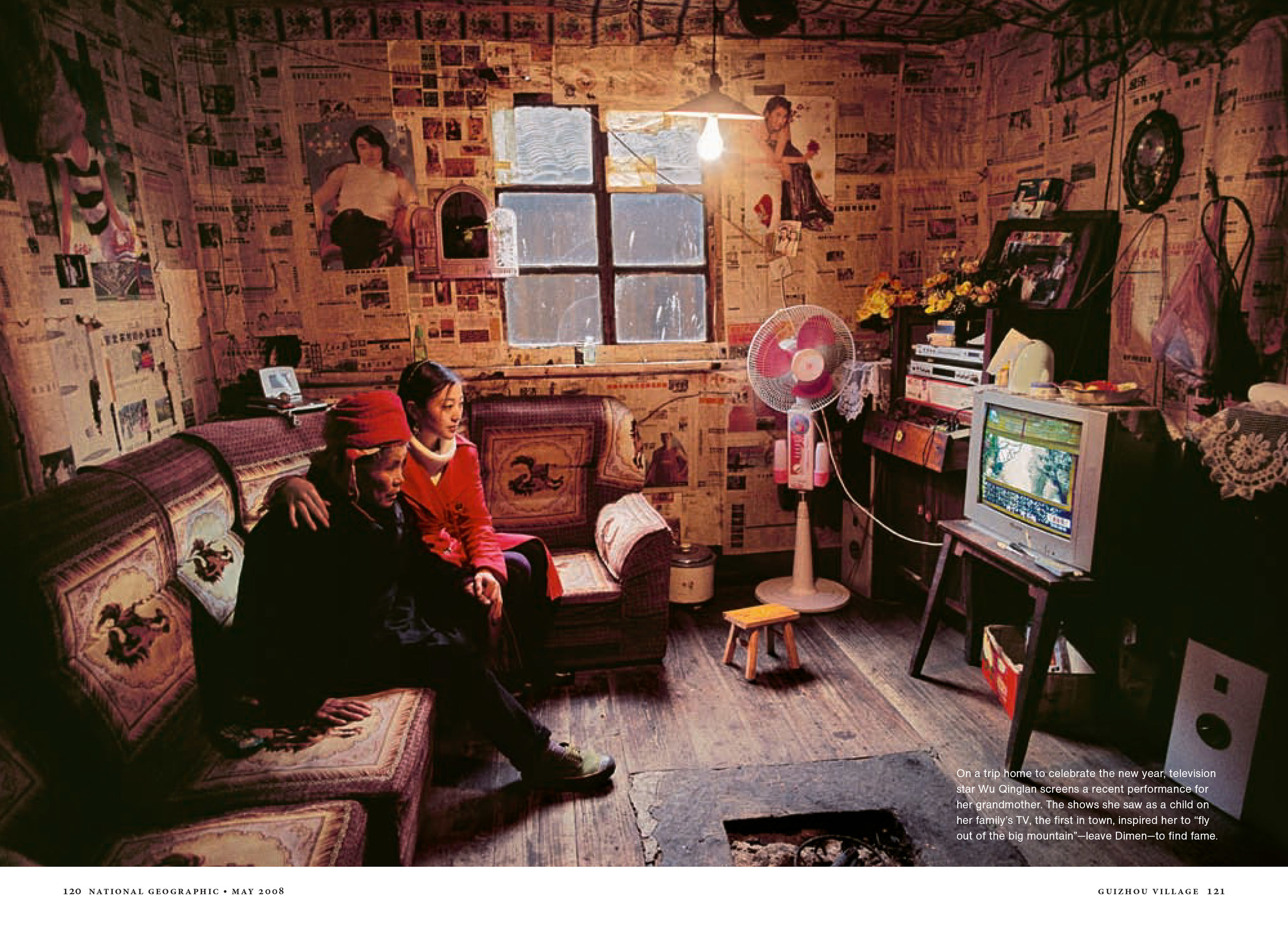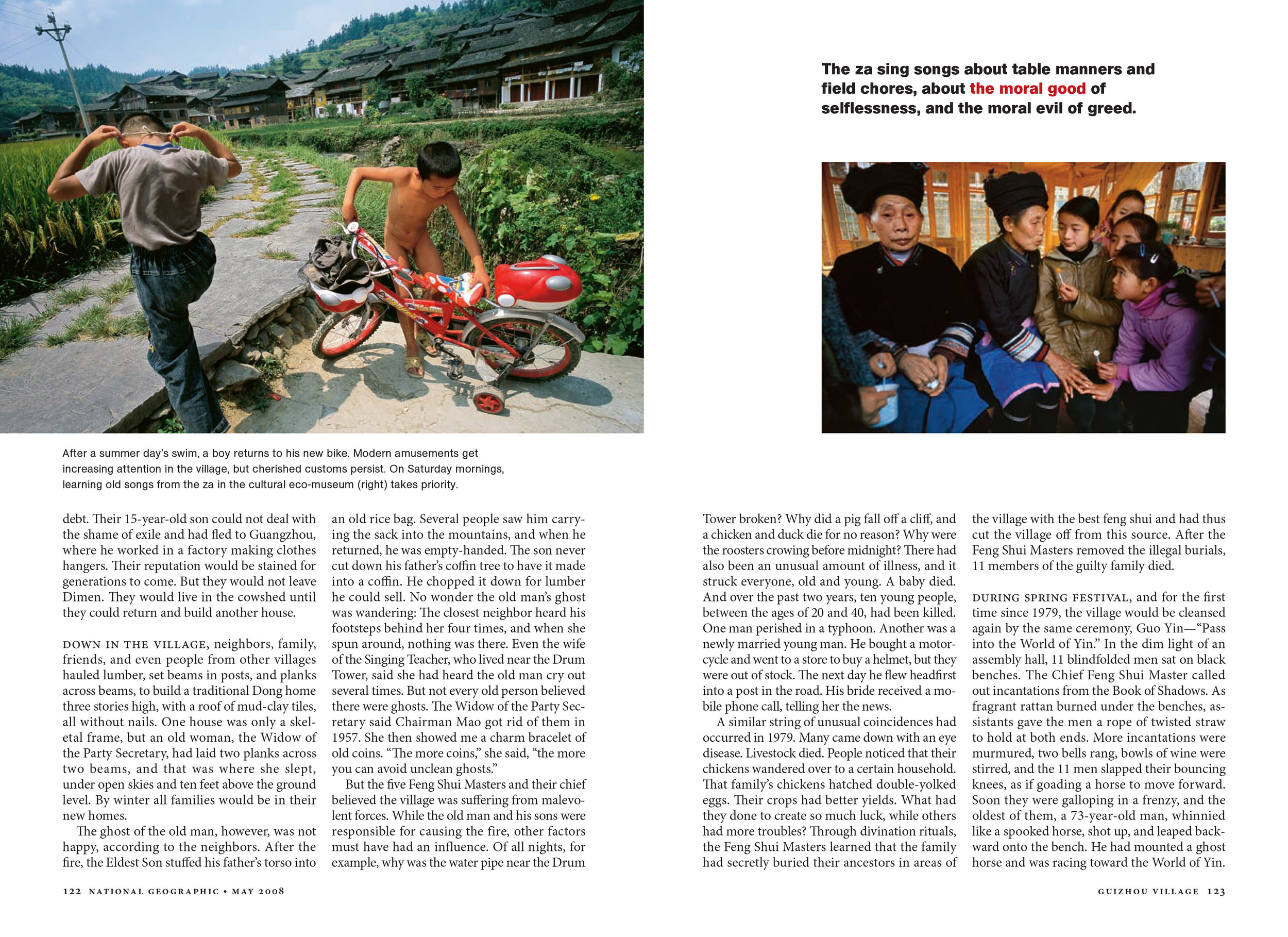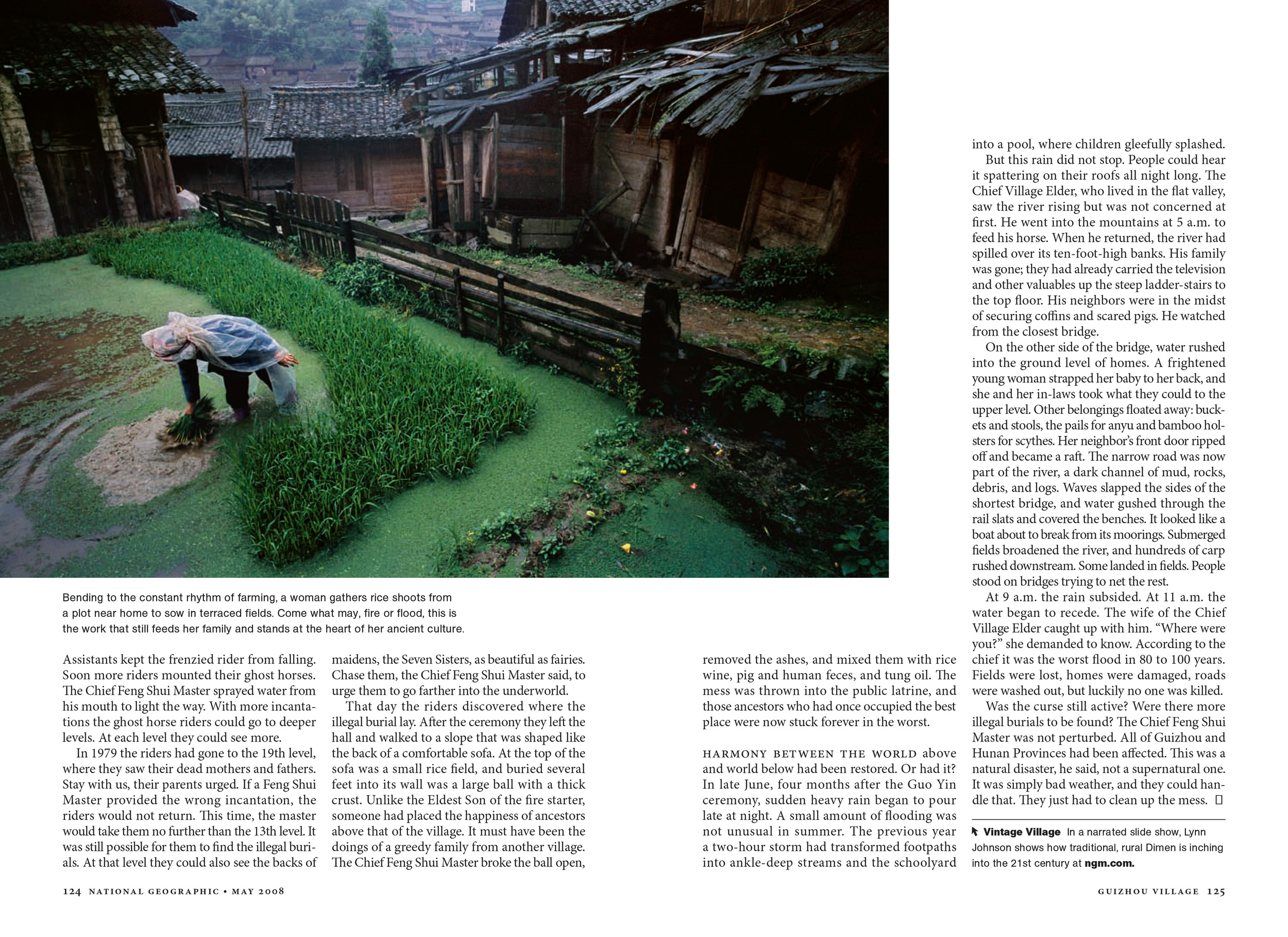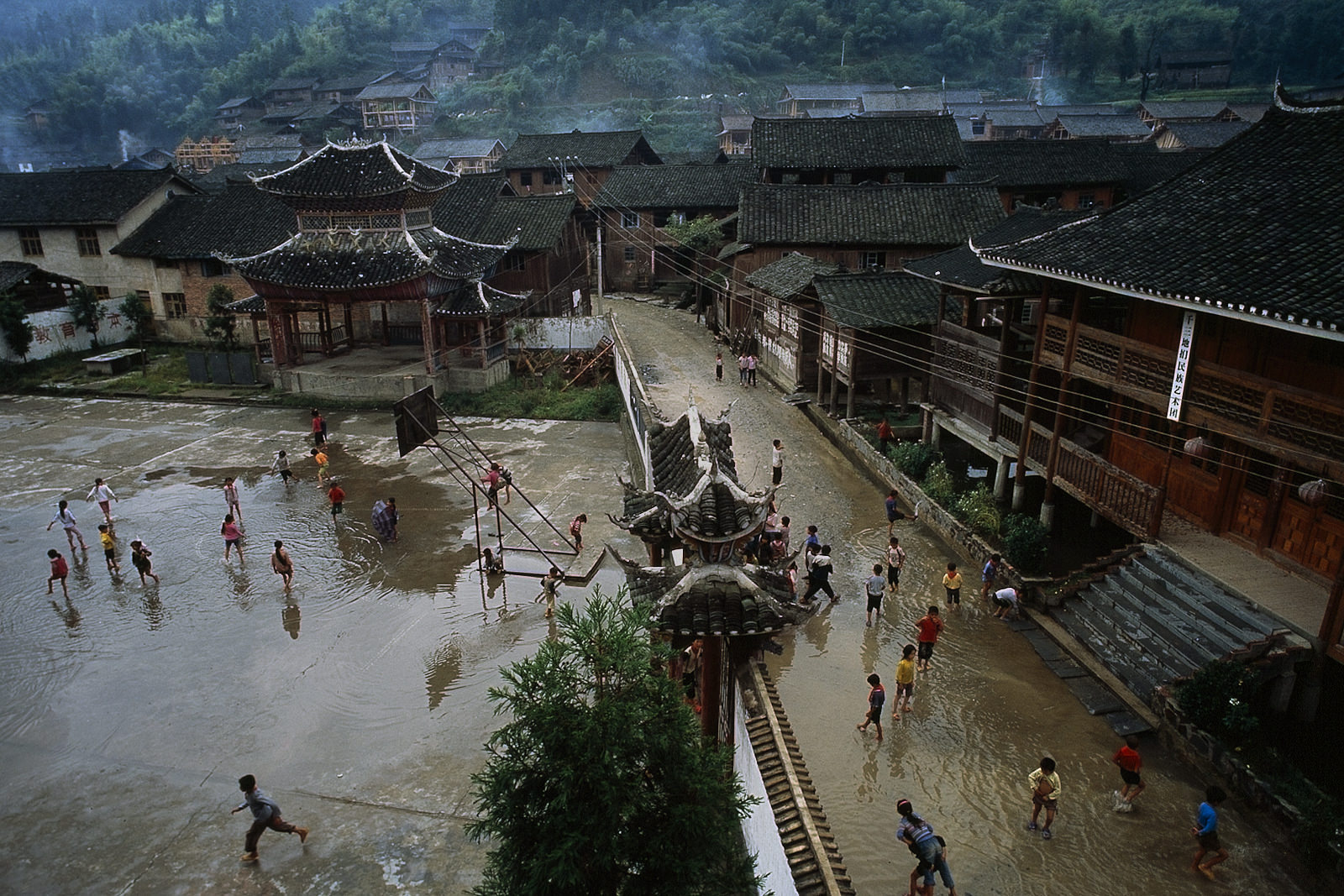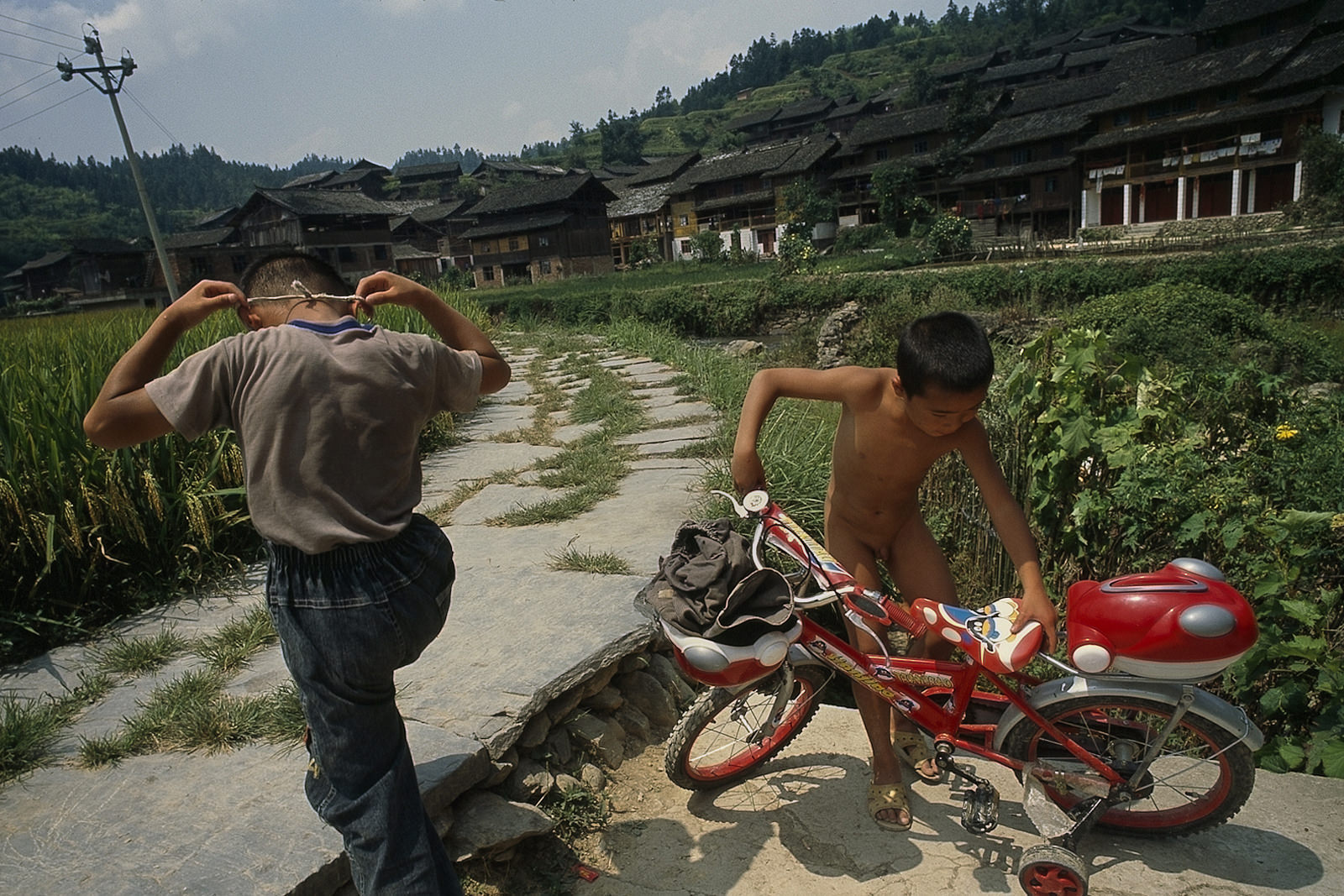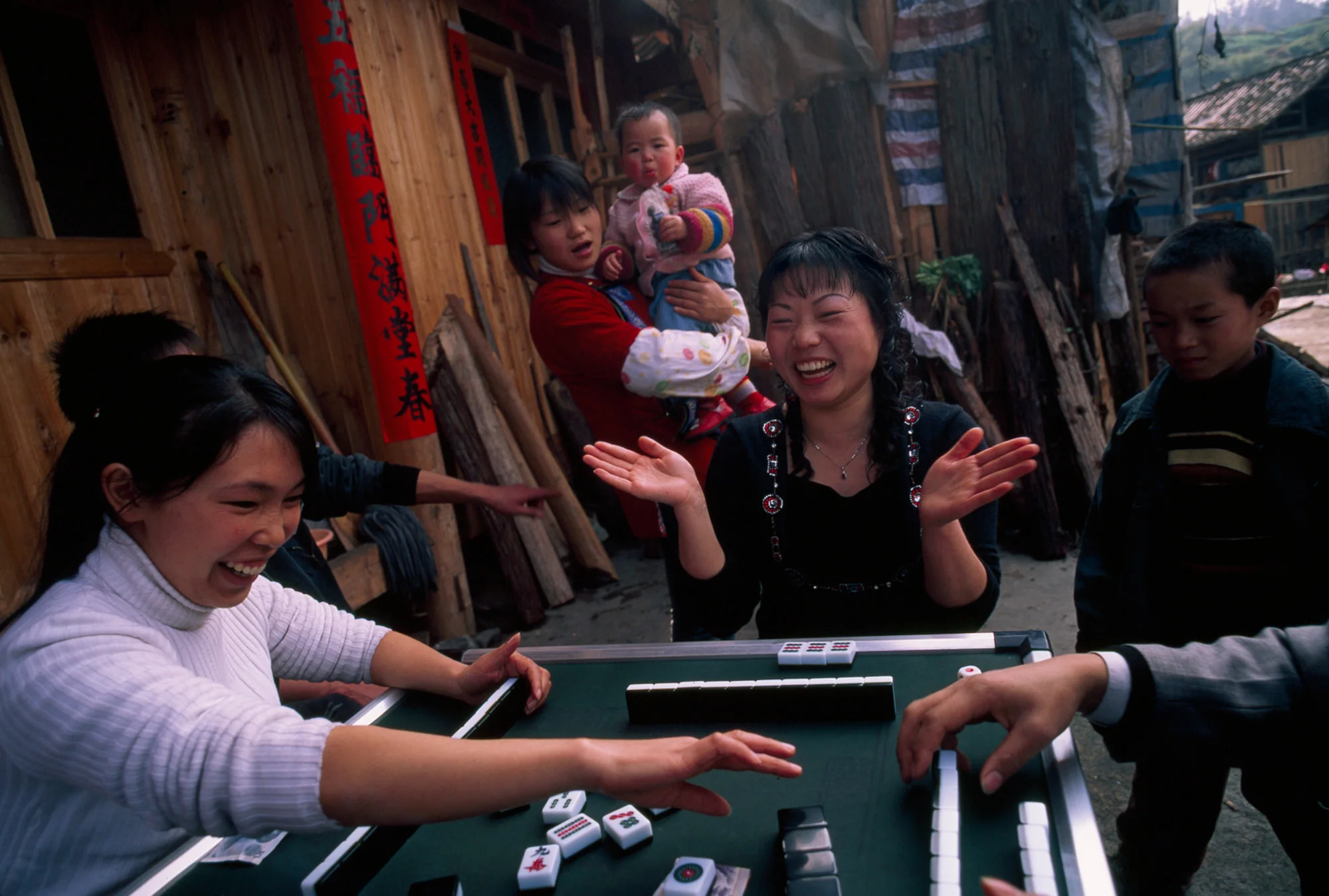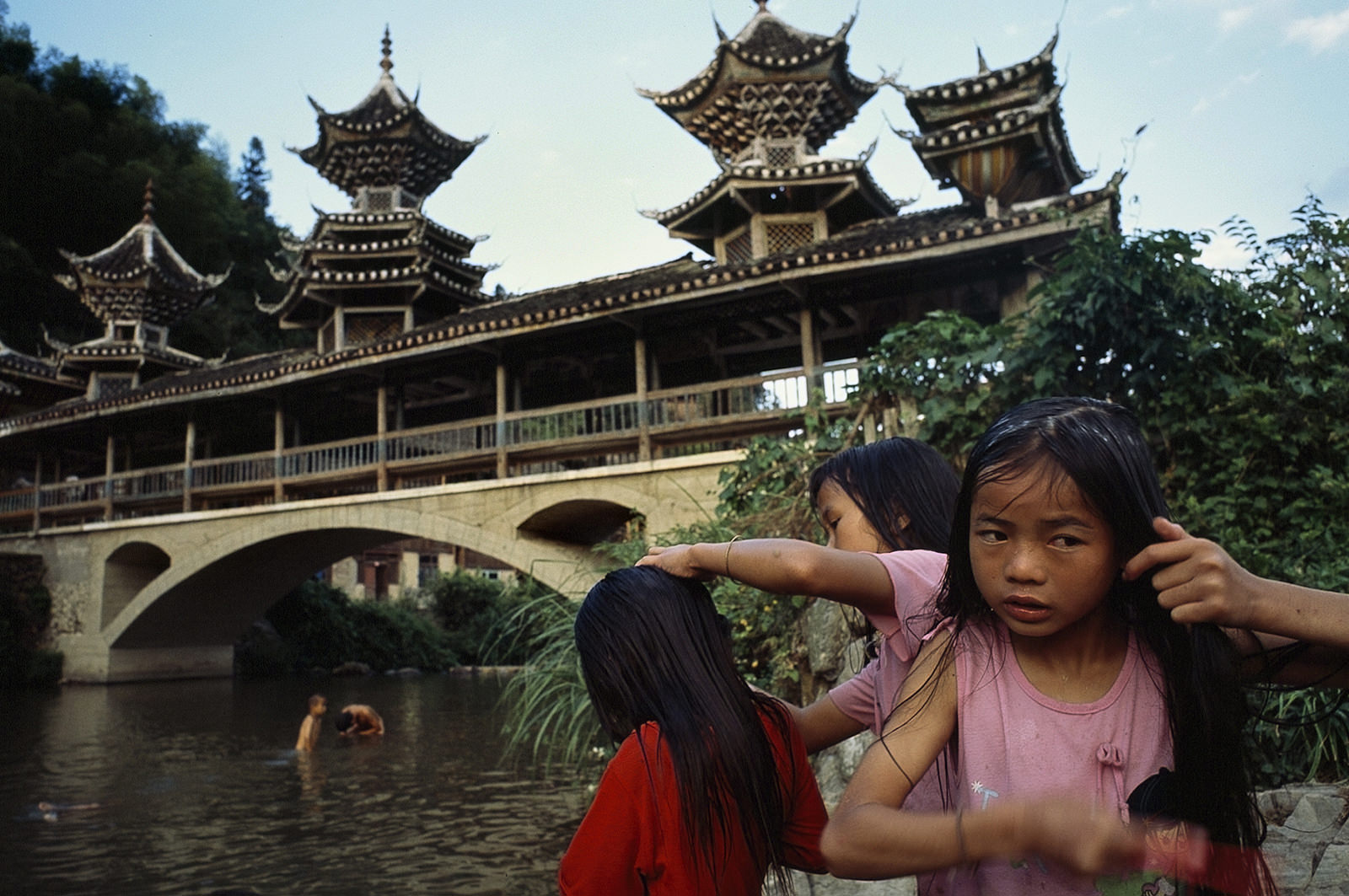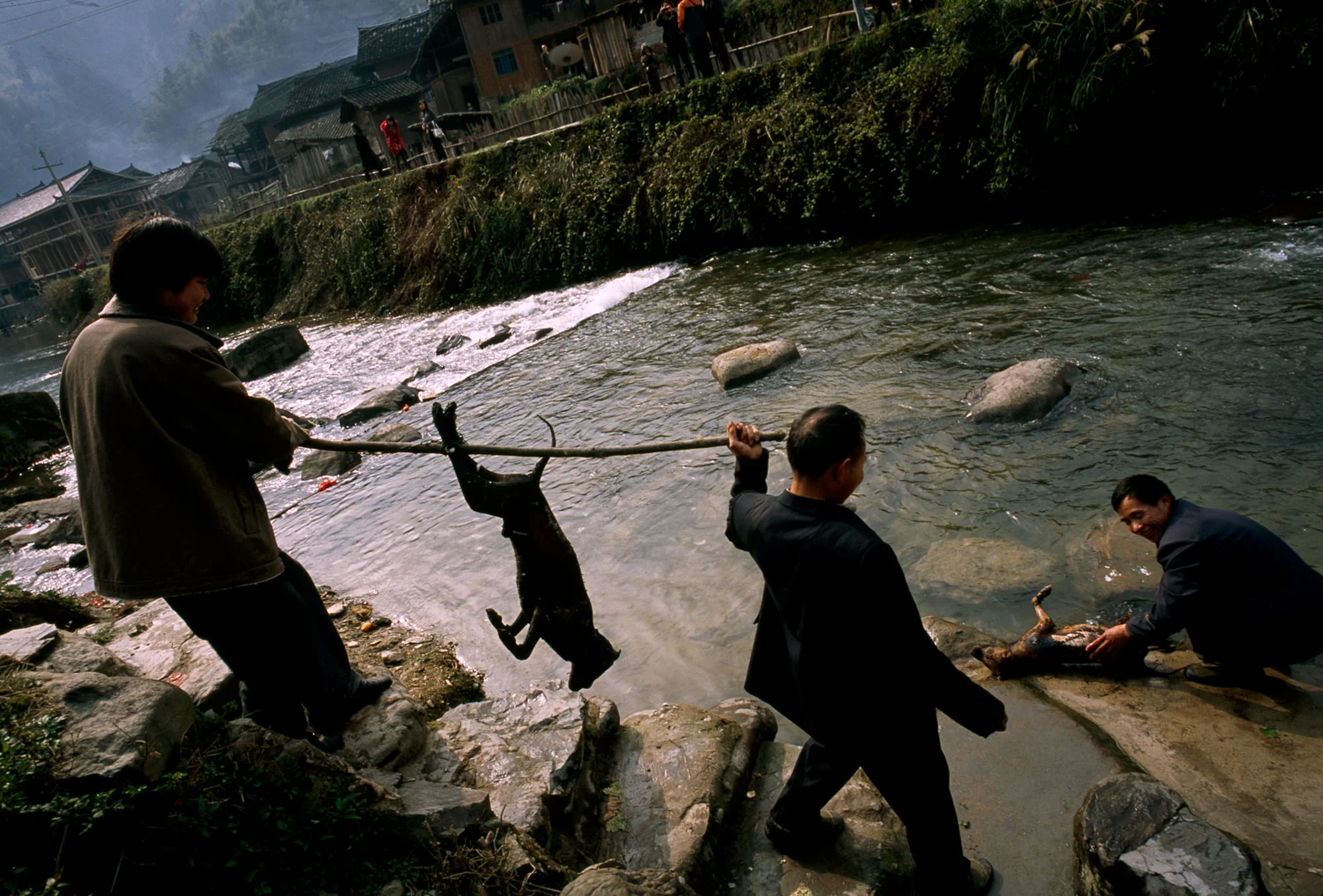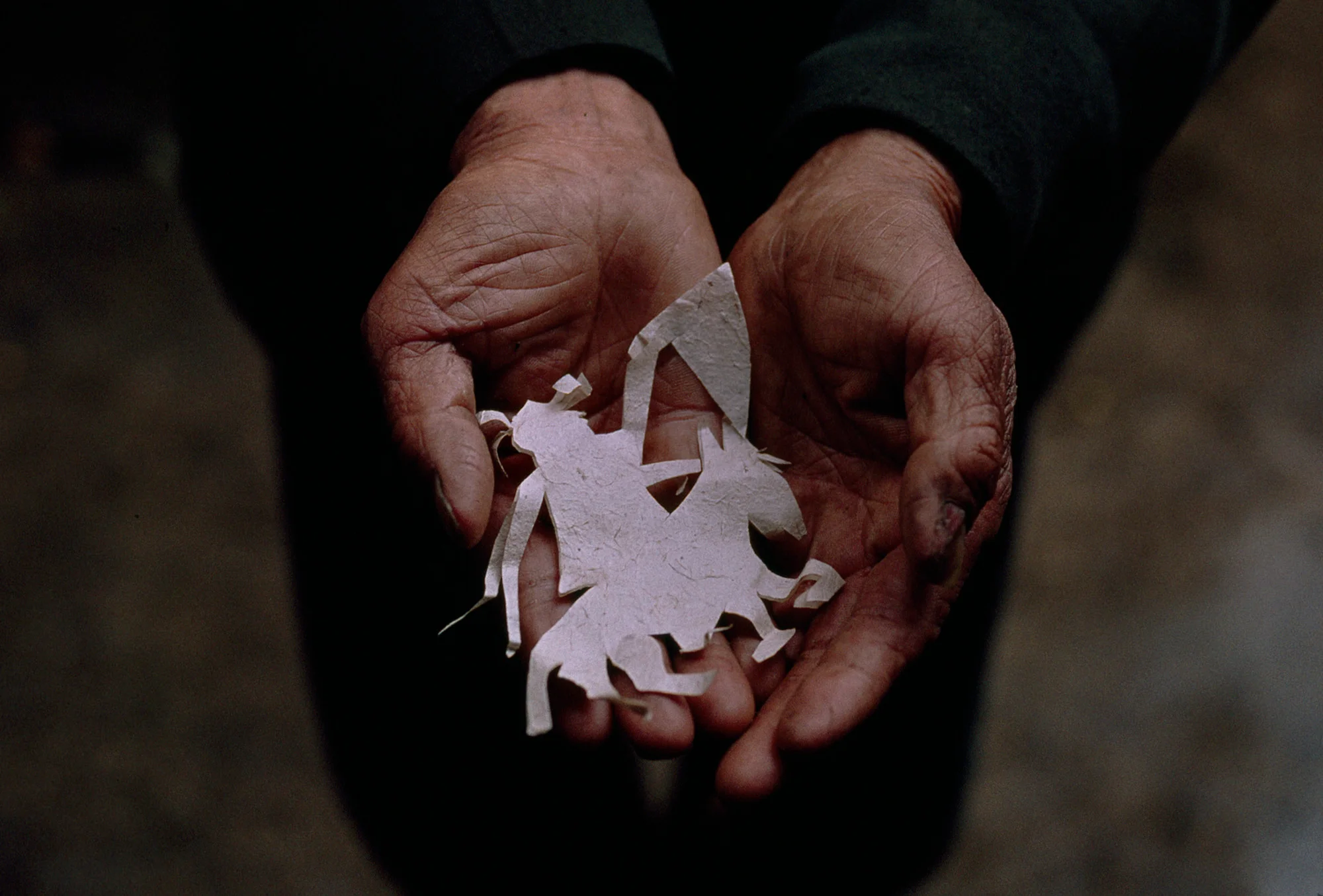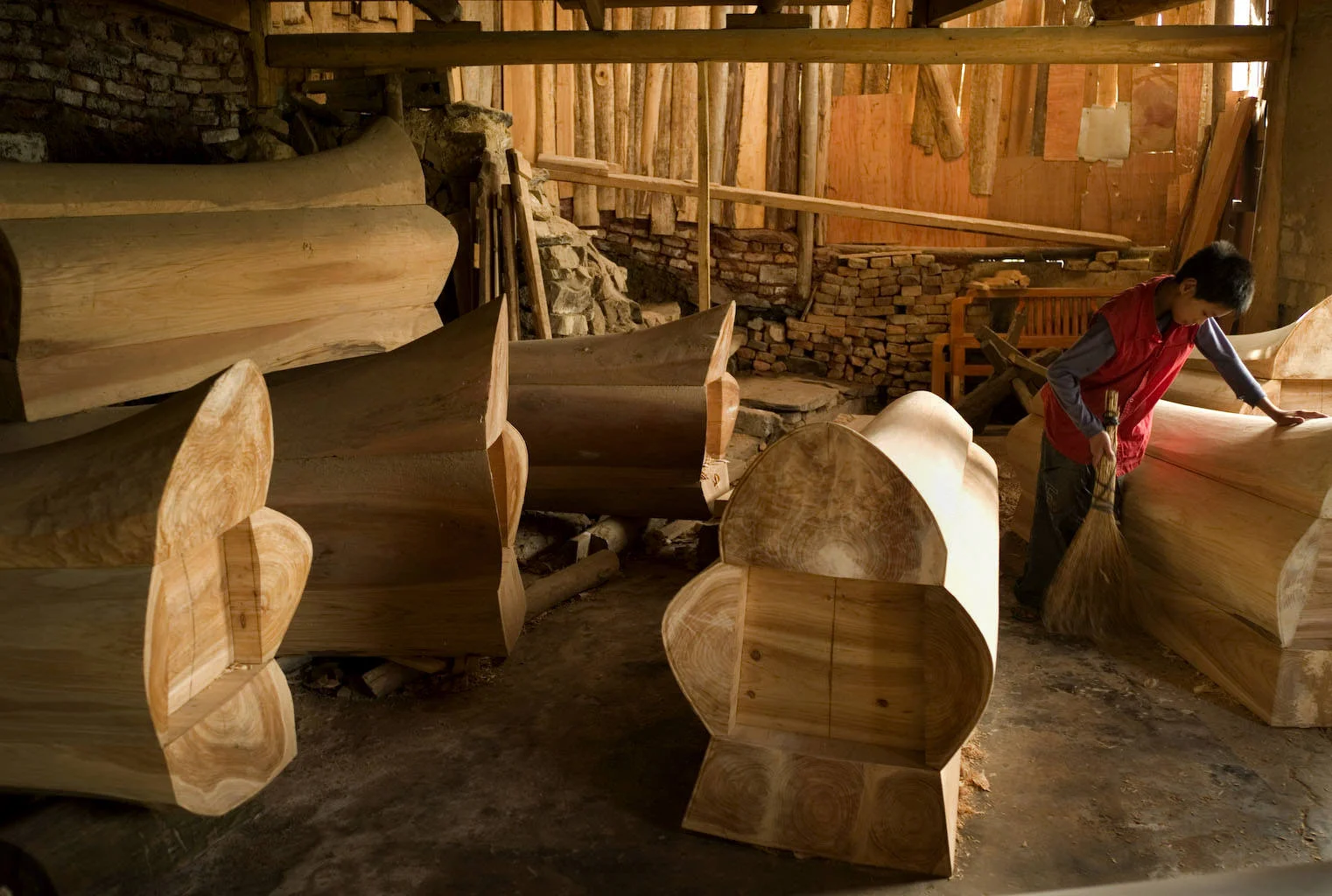China Village
Remote valley, fairytale lives. That is the first impression of Dimen, a terraced village in Southeast China. The ethnic Dong people who cluster along the river and on the steep hillsides believe in ghosts, hard work and traditional gender roles. Women keep house, pacing out rice fields and roasting dogs. Men are builders and butchers. Modern luxuries are few—there is only one car in this village of several hundred people.
Adults between the ages of 18 and 40 typically work in nearby cities, returning to their families only on festival days. Their absence makes Dimen a village of elders and children. Daily chores and gossip define the days. Grannies sing the lessons that teach right from wrong, how to plant, find a husband or protect oneself from naughty spirits.
And in a uniquely Dong tradition, the elders introduce children to their coffin trees. When a child is born, the family searches for a small tree, one with a certain kind of flared root. As the children grow, so do the trees that will be cut down to house their bodies in death. Coffin trees dot the hillsides, symbols of the past, present and future.
China Village (“Village on the Edge of Time”) was published in the May 2008 issue of National Geographic Magazine.
